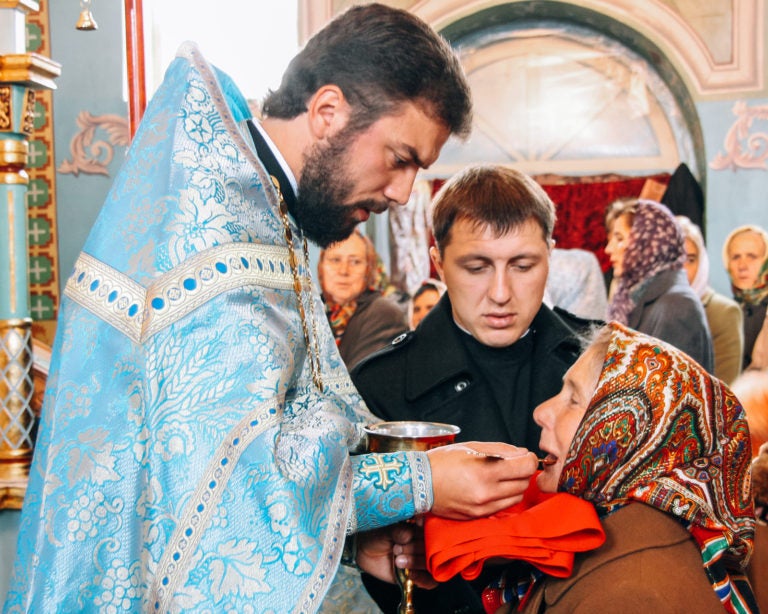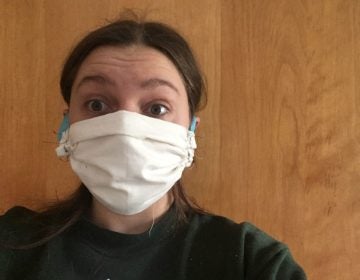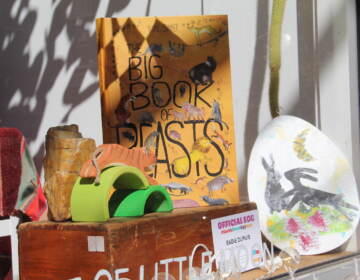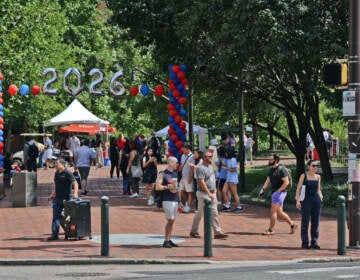‘Still hopeful’: For Easter, Philly churches are coming together for virtual communion
Philadelphia churches have had three weeks to build their online chops for Holy Week, the biggest week of their calendar, during a pandemic.
Listen 3:13
( a_mikos/BigStock)
When COVID-19 infections started spreading through Philadelphia a month ago, the St. Peter’s Episcopal Church in Society Hill was one of the first to stop in-person worship services.
It’s rector, Rev. Claire Nevin-Field, is a former nurse who worked at a Philadelphia veteran’s hospital in the 1980s during the HIV/AIDS pandemic.
“I’m acutely aware of infectious diseases,” she said. “From the beginning, I’ve insisted that we worship from home. I can’t in good conscience ask anyone to come to the church and expose themselves to a virus.”
Like many churches around the country, St. Peter’s pivoted to “virtual” worship services online. It was not easy.
“There’s a meme going around based on the old Star Trek: ‘My God, man! I’m a priest, not a videographer!’” said Nevin-Field, paraphrasing a famous line from Dr. Leonard “Bones” McCoy. “That’s how I feel these days.”
During Holy Week — the days that lead up to Easter Sunday — St. Peter’s is using Zoom and Facebook Live platforms to engage its congregation, experimenting with both interactive and more static means for people to participate in religious practice. Nevin-Field is streaming everything from her home, assisted by other ministers from their respective houses.
They are making do, but it’s far from satisfying. One of the basic tenets of Christianity is being together physically.
“This is the most sacred week on the Christian calendar,” Nevin-Field said. “Christian faith is about embodiment. Our story is one of God becoming human. It’s disorienting to not have that this week.”
During the most sacred week of the Christian calendar, faith leaders are stepping up their efforts to reconnect with congregants who are not allowed to gather in churches in order to avoid spreading or contracting the coronavirus.
“There’s a serious concern among pastors to be connected with the people,” said Rev. Dennis Gill, director of the Office of Divine Worship at the Archdiocese of Philadelphia. “They are reaching out as well as they can, mostly electronically to the faithful. Livestreaming has become the norm.”
For the Catholics, the Archdiocese is live streaming all of its Holy Week services from the Cathedral Basilica of Saints Peter and Paul on Benjamin Franklin Parkway. Viewers online, and via WHYY-TV, will be able to see all the finery and accoutrements of Catholic Mass at its most sacred, but with no one in the pews. The church will be empty of congregants.
“We only have those necessary ministers,” Gill said. “It’s a very small group of people: the archbishop, the deacon, myself, the musical ministers and lectors. That’s it.”
There will also be no communion, one of the fundamental parts of Catholic Mass. While the Vatican does allow for a “spiritual communion,” which Gill describes as a prayer in which you “personally unite yourself to the act of receiving communion, so you have a spiritual association with Christ,” it is not the same as the act of receiving a consecrated wafer, considered a holy sacrament.
“The sacraments are in-person encounters,” Gill said. “There is no substitution.”
Other faith traditions have temporarily softened the rules during the pandemic. The Presbyterian Church (USA), for example, issued a decision allowing its ministers to administer communion virtually.
“That understanding has been worked out in deeply Presbyterian ways: through careful reflection, study, discussion, and through making decisions collectively,” it read.
What that means is that ministers can consecrate bread and wine (or grape juice) on one end of a livestream, and congregants in their homes mimic those actions with their own bread and wine.
“I say the following phrase: ‘Tear off a piece of bread as generous as you understand God’s grace to be, then take a little bit more because God’s grace is always more than you think you deserve,” said Rev. Bill Golderer of the Arch Street Presbyterian Church in Center City. “It’s super-awkward and unfamiliar. But we’ve had to learn how to adapt ourselves.”
All of these live-streaming worship services are happening with the understanding that someone is receiving it on the other end.
In the case of the Catholic Archdiocese, tens of thousands of people have been watching on recent Sundays and during Holy Week. But they were concerned some Catholics would be left behind, so they asked WHYY to broadcast Easter Mass, which it will Sunday at 11 a.m. on Channel 12.
Golderer also worries some of the faithful are on the other side of the digital divide, without access to the technology that would allow them to participate in virtual services.
“While some of us are privileged enough to ride out the social isolation storm that we are experiencing right now, for many there is a deep sense of grief and anxiety about what this all means,” Golderer said.
A small church in Philadelphia’s Strawberry Mansion neighborhood has given up on trying to recreate services online. The Geiger Memorial Brethren Church has only a few dozen regulars, some with little to no access to online technology.
Marco Silva, the new pastor of Geiger Memorial, is instead talking to congregants over the phone, communicating through texting, and posting his own YouTube videos a few times per week with Bible readings and analysis.
“I’m lamenting the fact that we can’t be together,” he said. “But I’m still hopeful that we are still the body of Christ and we can still find hope together by reading the same scripture together.”
Silva is actually writing his Bible lessons as letters, on old-fashioned paper, and dropping them off at the homes of some congregants who cannot go online.
“Not unlike the New Testament itself, which were letters,” he said. “Talk about old-school. We’re going back to New Testament technology.”
Silva points out that even the apostles, in their biblical letters, lamented the fact that they could not be together:
“I have much to write to you, but I do not want to use paper and ink,” as written in 2 John 1:12. “Instead, I hope to visit you and talk with you face to face, so that our joy may be complete.”
“It’s interesting to think about spirit, soul and body as intertwined,” Silva said. “Try as we might to replicate our experience with Facebook Live or Zoom, it’s just not the same as face to face. Even the apostle John expressed that. He longed for face to face fellowship.”
WHYY is your source for fact-based, in-depth journalism and information. As a nonprofit organization, we rely on financial support from readers like you. Please give today.





![CoronavirusPandemic_1024x512[1]](https://whyy.org/wp-content/uploads/2020/03/CoronavirusPandemic_1024x5121-300x150.jpg)


